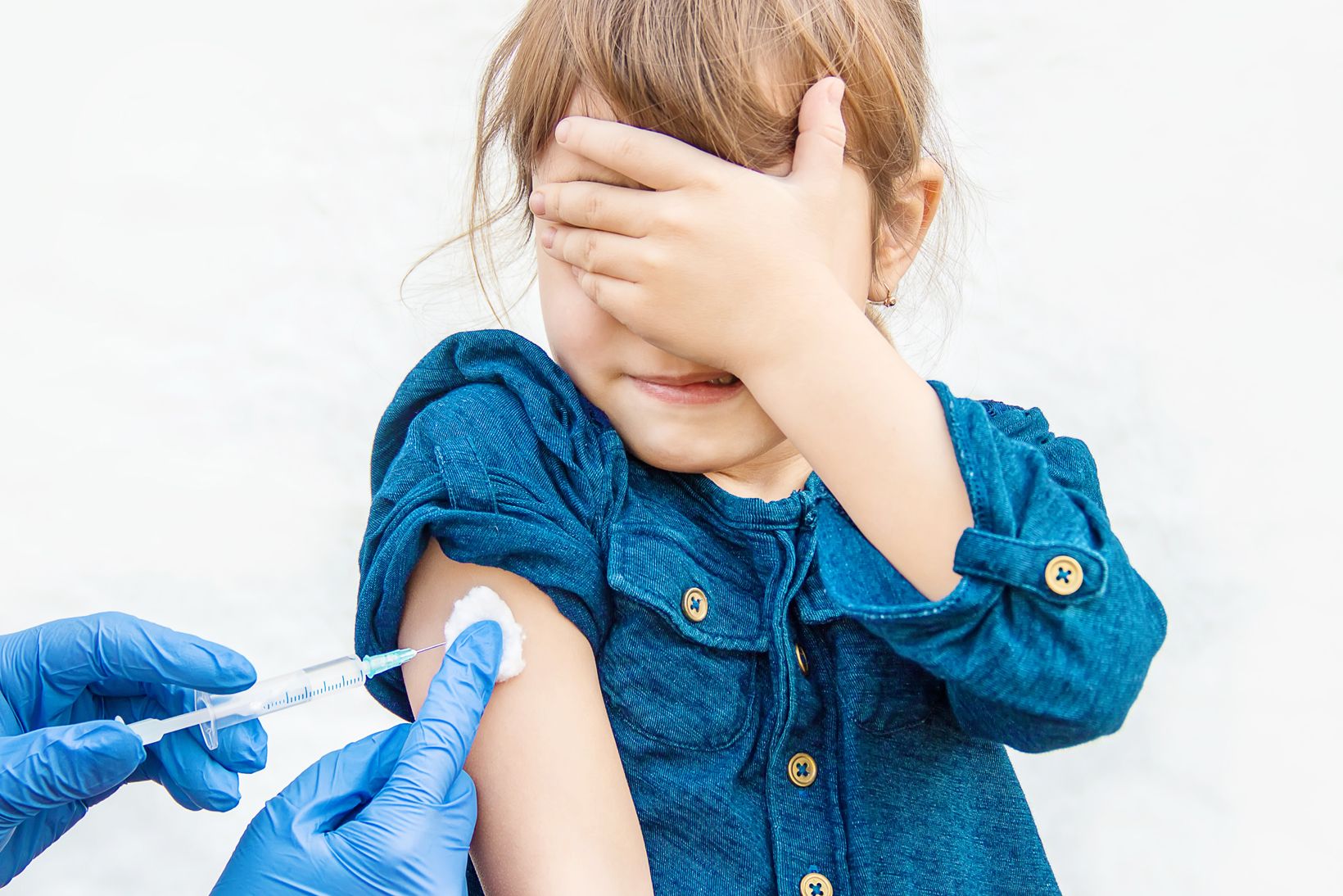The First Vaccines For Your Baby
What You Should Know About Children Vaccination in Mexico
As parents, we always try to do everything we can to protect our children and keep them safe and healthy. Vaccines are an important way to do this since vaccines help protect our children against a wide variety of dangerous diseases. When we talk about vaccines, we all know the basics. But is knowing the basics enough? In this article, you will learn everything you should know about the first vaccines for your baby.
Have You Ever Wondered What a Vaccine Is? Here’s a Simple Vaccine Definition
According to The Centers for Disease Control and Prevention (CDC), a vaccine is “a product that stimulates a person´s immune system to produce immunity to a specific disease”. Therefore, a vaccine will protect a person from a certain disease. Most often, vaccines are administered through needle injections. Nevertheless, they can also be sprayed through the nose or be taken orally, through the mouth.
Why Are The First Vaccines For Your Baby so Important?
For newborns, breast milk does a great job in protecting against many diseases during the first stage of their lives. However, this immunity disappears within a year. Furthermore, there are babies who are not breastfed at birth.
Consequently, breastfed or not, the first vaccines for your baby are extremely important, as they will protect him or her from certain conditions. Likewise, they can help prevent the spread of diseases from the smallest to the oldest children or adults. Vaccines work by imitating the infection of a certain disease in the child’s body. In turn, this causes their immune system to develop small weapons called antibodies. These antibodies are agents that fight the disease that the vaccine aims to prevent. Thus, if the antibodies work properly, children can overcome any infection of a certain disease.

Vaccination program in Mexico
One important thing to note regarding this topic is that vaccinations are mandatory in Mexico. In fact, thanks to its “Universal Vaccination Program”, Mexico has one of the most complete vaccination schemes in the world. Mexico’s Universal Vaccination program is based on vaccination cards, and therefore, all Mexican children and babies should have one. Mexico’s mandatory vaccination scheme is for and includes all children under the age of five.
Important facts about Vaccinations for babies and children in Mexico:
- Mexico’s vaccination system: Mexico has one of the most advanced vaccination schemes in Latin America.
- Mandatory vaccination: Vaccination is mandatory in Mexico, and it is also a universal right.
- Mexico’s Universal Vaccine Program: it was founded in 1991 and is one of the cornerstones of Mexico’s public health system.
- Cost of vaccines in Mexico: All Vaccines are free in Mexico.
- Where to get vaccines in Mexico, free of cost: free vaccination services are available in all of the following public hospitals; Secretaria de Salud, IMSS, ISSSTE, DIF, etc.
- Vaccination cards: All Mexican babies and children must have a vaccination card. In fact, most nurseries and public schools in Mexico demand a child’s national vaccination card before enrollment.
- First year without Polio: 1991 was the first year without any cases of poliomyelitis in Mexico.
- The last case of Diphtheria: The last case of Diphtheria in Mexico happened in 1992.
- First year without Measles: 1997 was the first year without any Measles cases in Mexico.

Vaccination Timelines and Vaccination Cards
It is incorrect to assume that vaccines will be injected immediately after a baby is born. As we mentioned earlier, the newborn is protected by the mother’s breast milk. Nonetheless, it is important to understand that each vaccine has a different timeline. Most of the first vaccines for your baby are applied during the baby’s first 24 months in several stages or doses. But don’t worry, you don’t have to learn the ‘vaccination calendar‘ by heart – you can work together with your family doctor who will guide you through the process. In addition, you can follow your children’s vaccination card.
Here is the vaccination timeline recommended by the Center for Disease Control and Prevention (CDC). This table complies with the vaccination basics for children. However, in some cases, a personalized schedule is required. In addition, remember that each vaccine application depends on the child’s health conditions:
| Vaccine Name | Age: Birth |
Age: 2 months |
Age: 4 months |
Age: 6 months |
Age: 1 year |
Age: 15-18 months |
Age: 4-6 years |
|---|---|---|---|---|---|---|---|
| Hepatitis B (HepB) | 1st dose | 2nd dose | – | 3rd dose | – | – | – |
| Rotavirus (RV) | – | 1st dose | 2nd dose | 3rd dose | – | – | – |
| Diphtheria, tetanus, and whooping cough (DTaP) | – | 1st dose | 2nd dose | 3rd dose | – | 4th dose | 5th dose |
| Influenza (IIV;LAIV) | – | – | – | 1st dose | 2nd dose | Annual doses | Annual vaccine |
| Measles, mumps, rubella (MMR) | – | – | – | – | 1st dose | – | 2nd dose |
| Chickenpox (VAR) | – | – | – | – | 1st dose | – | 2nd dose |
| Hepatitis A (HepA) | – | – | – | – | – | Double-dose series at 18 months | – |
What are the most common Vaccines in Mexico for children under the age of five?
Below, you will find the most important information regarding common vaccines used in children in Mexico:
- Hepatitis B – HepB: it protects against hepatitis B and liver infections. It is administered in three stages. The first vaccine is injected at birth.
- Rotavirus – RV: this vaccine provides a shield against rotavirus; the cause of annoying diarrhea. It is administered in two or three doses, depending on the type of vaccine being used.
- Diphtheria, Tetanus and Whooping Cough (Pertussis) – DTaP: it acts as a shield against diphtheria, tetanus and whooping cough. It requires five doses during childhood. It is common to reinforce this vaccine during adolescence and adulthood.
- Influenza or seasonal flu vaccine: the one that defends against the flu. This is a seasonal vaccine that is administered annually. It can be administered from 6 months onwards.
- Measles, Mumps, and Rubella (German measles) – MMR: this vaccine protects against measles, mumps, and rubella. It is injected in two stages or doses. The first is usually administered between the ages of 4 and 6 years. This vaccine can be re-administered 28 days after the last dose.
- Varicella Virus vaccine – VAR: acts against chickenpox. It is recommended to apply it to all children equally. It is given in two doses after the child reaches one year of age.
- Hepatitis A – HepA: protection against hepatitis A. It is administered in two doses between the first year and the second year of life.
| Mexico's National Vaccination Scheme | ||||
| At Birth | BCG Vaccine | Hepatitis B Vaccine | ||
| 2 months old |
DTap Vaccine | Hepatitis B Vaccine | Rotavirus Vaccine (RV) | Pneumococcal Vaccine |
| 4 months old |
DTap Vaccine | Rotavirus Vaccine (RV) | Pneumococcal Vaccine | |
| 6 months old |
DTap Vaccine | Hepatitis B Vsccine | Rotavirus Vaccine (RV) | Influenza Vaccine |
| 7 months old |
Influenza Vaccine (second dose) | |||
| 12 months old |
MMR Vaccine | Pneumococcal Vaccine | ||
| 18 months old |
DTap Vaccine | |||
| 2 years old |
Influenza Vaccine (booster) | |||
| 3 years old |
Influenza Vaccine (annual booster) | |||
| 4 years old |
DTap Vaccine (booster) | Influenza Vaccine (annual booster) | ||
| 5 years old |
Influenza Vaccine (annual booster) | |||
| OPV (Oral Polio Vaccine) from 6 to 5 years old | ||||
| 6 years old |
MMR (booster) | |||
| 11 years old |
HPV (Human Papilloma Virus) | |||
Frequently Asked Questions about the First Vaccines for your baby
- Are vaccines dangerous for children? Should I be concerned?
No. Vaccines have been shown to be safe for children. There is no evidence that vaccines cause diseases. The CDC points out that vaccines have been shown to protect children from some very serious diseases. People used to get very sick or in some cases die from diseases that vaccines now help prevent. In fact, even chickenpox can be deadly but thanks to its vaccine now it’s rare to find a case.
- What are some side effects my child can present after a vaccine?
Vaccines can cause mild side effects, such as redness and swelling where the injection was given. However, these effects should go away within a few days. Serious side effects, such as severe allergic reaction are very rare. Keep in mind that the risk from the disease is much greater than the risk of serious side effects from the vaccine.
- How can I help relieve any vaccine side effects for my child?
It is common that your child may experience side effects after some immunizations like fever, redness, swelling and sometimes a small lump that goes away. Here are some tips to ease the situation after a vaccine:
- Check your child’s body temperature every 4 hours after the vaccine.
- Give extra fluids to drink.
- You can put a wet cloth in the injection site to ease discomfort.
English to Spanish translation of most common baby and children vaccines in Mexico
|
Vaccine English Name |
Vaccine Spanish Name |
What is it for? |
|---|---|---|
|
HPV Vaccine |
Vacuna Virus del Papiloma Humano VPH |
Works against the Human Papilloma Virus. |
|
MMR Vaccine |
Vacuna Triple o SRP |
Prevents measles, rubella and mumps viruses. |
|
Shingles Vaccine |
Vacuna contra Varicela |
This vaccine works to prevents serious cases of chickenpox in children. |
|
Rabies Vaccine |
Vacuna contra la Rabia |
Ideal for rabies prevention. Only in cases of rabies suspicion. |
|
Pneumococcal Vaccine |
Vacuna Neumococo Conjugada |
Works against invasive pneumococcal infections. |
|
TDAP Vaccine |
Vacuna Tdpa |
Protects children against diphtheria, tetanus and acellular pertussis. |
|
Hepatitis B Vaccine |
Vacuna Anti-hepatitis B |
Prevention against the Hepatitis B infection that affects the liver. |
|
Rotavirus Vaccine |
Vacuna Rotavirus |
Works against severe gastroenteritis in children caused by Rotavirus. |
|
Tetanus Diphtheria Vaccine |
Vacuna Td |
This vaccine works against diphtheria and tetanus. |
|
Measles Rubella Vaccine |
Vacuna SR |
Prevents measles and rubella viruses. |
|
Yellow Fever Vaccine |
Vacuna Fiebre Amarilla |
The Yellow Fever vaccine it is placed only in cases of suspicion |
|
Polio Vaccine |
Vacuna SABIN |
Against poliomyelitis 1, 2 and 3. |
|
Influenza Vaccine |
Vacuna Anti-influenza |
Fights the flu virus. |
Remember that vaccination keeps us and our children safe from many infectious diseases if applied on time. If you decide to avoid it, you and your loved ones will be at risk of catching some infectious diseases. As with any medication, we may experience some vaccination side effects. However, they are mostly mild and usually the last one to two days. Nevertheless, if the symptoms of discomfort persist or turn severe you should contact your doctor, as these may be due to an illness rather than your recent vaccine.




